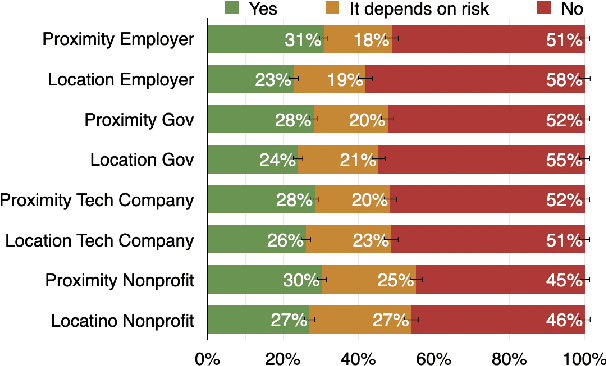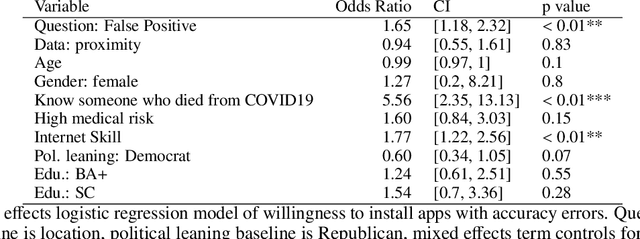How good is good enough for COVID19 apps? The influence of benefits, accuracy, and privacy on willingness to adopt
Paper and Code
May 18, 2020



A growing number of contact tracing apps are being developed to complement manual contact tracing. A key question is whether users will be willing to adopt these contact tracing apps. In this work, we survey over 4,500 Americans to evaluate (1) the effect of both accuracy and privacy concerns on reported willingness to install COVID19 contact tracing apps and (2) how different groups of users weight accuracy vs. privacy. Drawing on our findings from these first two research questions, we (3) quantitatively model how the amount of public health benefit (reduction in infection rate), amount of individual benefit (true-positive detection of exposures to COVID), and degree of privacy risk in a hypothetical contact tracing app may influence American's willingness to install. Our work takes a descriptive ethics approach toward offering implications for the development of policy and app designs related to COVID19.
 Add to Chrome
Add to Chrome Add to Firefox
Add to Firefox Add to Edge
Add to Edge